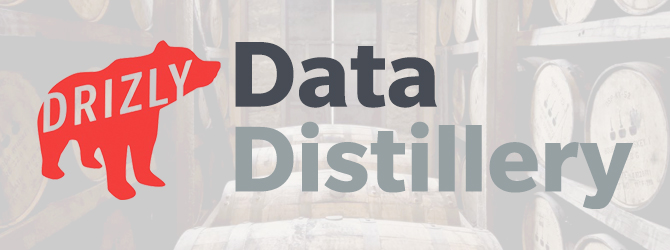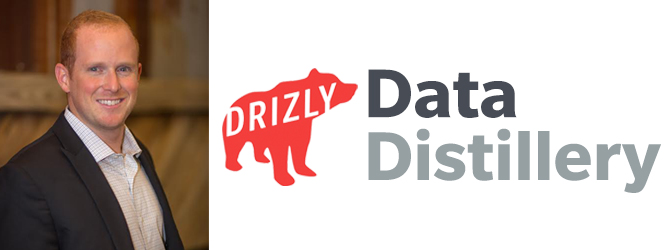
In an effort to democratize the alcohol industry’s data, Drizly — a technology company and mobile e-commerce platform – has launched what it calls its “data distillery.”
Unveiled last week, the new data hub offers both consumers and alcohol industry professionals free insights, compiled from millions of orders in the 70 U.S. cities and 25 states where Drizly operates.
“We’ve seen in our data that we are sometimes six months or one year ahead of market trends,” Drizly co-founder Justin Robinson told Brewbound. “That is why we thought it was important to publish these findings, especially insights we think the industry will find interesting.”
In a press release, the company called the new platform an “industry-first,” and said that data compiled over four years would provide “relevant insights and analysis to better inform strategy and marketing decision-making.”
“Until now, granular data from e-commerce consumers and independent retailers on pricing, inventory and product movement has been obscured from view, forcing suppliers to rely on anecdotal evidence, or numerous and costly hours spent checking store-by-store,” the company wrote.
So how does it work?
Drizly plans to regularly publish findings, sourced from transactions that occur across its platform, on the website data.drizly.com.
Publicly available data will include higher-level information, such as:
- 48 percent of craft beer purchased on the Drizly platform is brewed within a drinker’s home state;
- The average 6-pack of beer purchased on Drizly is $10.95;
- Male shoppers spend an average of $11.04 per 6-pack while females spend $10.79;
- The cost of a 6-pack is highest in New York, at an average of $14.25

Drizly also plans to offer deeper insights and raw datasets to alcohol industry members, including retailers, wholesalers, suppliers, importers, members of the press and marketing agencies working with alcohol companies.
“For the first time, suppliers from multi-category international brands to bootstrapping craft breweries will have access to raw data and aggregated findings to better assess the effectiveness of their promotional campaigns, and see precisely what their products are selling for, neighborhood by neighborhood,” the release noted.
Brewbound was granted access to this area of the data distillery website and was able to download a spreadsheet containing the pricing, package type and retailer location (city and state) information for nearly 28,000 beer, wine and spirits SKUs.
“Drizly not only brings us closer to the consumer point of purchase than ever before, it also opens up a rich trove of data that helps us understand our fans in a way we never have before,” Nicole Portwood, vice president of brand marketing for Tito’s Handmade Vodka, said in a press release. “Unlike some other research products, the Drizly offering is highly actionable and has led to some first-of-its-kind programming for our brand.”
The bigger question for Drizly — which has pulled in $35 million in venture funding from investors such as First Beverage, Gary Vaynerchuk (via the Vayner RSE fund) and the Wine & Spirits Wholesalers of America, among others — is how disruptive its new data offering will be, considering that established market research firms such as IRI Worldwide and Nielsen have long sold customized retail sales information to beverage companies for a hefty sum.
But Robinson told Brewbound that he doesn’t intend on competing with those businesses, saying that Drizly was a “consumer-focused” company and that it had “no agenda.”
“We think it is important that the industry starts talking, understanding and putting the consumer first,” he said. “We are willing to tell the industry, for free, ‘here is something interesting.’ And if the industry continues to innovate on the consumer’s behalf, we are all going to win at the end of day.”
